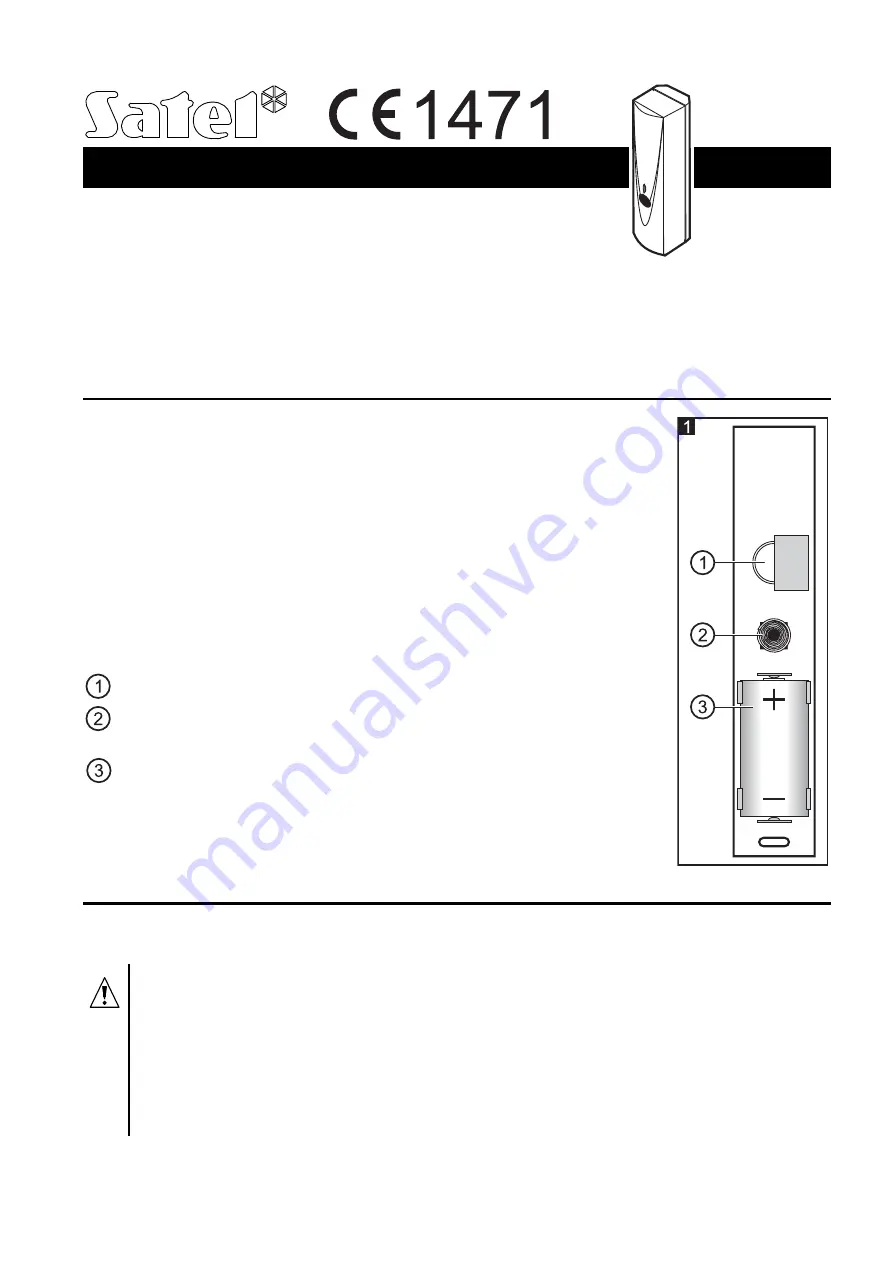
®
AGD-100
WIRELESS GLASS-BREAK DETECTOR
agd100_en 01/12
The AGD-100 detector enables detection of a break of plate, tempered and laminated glass.
It is designed for operation within the ABAX two-way wireless system. It is supported by the
ACU-100 controller with firmware version 1.06 (or newer) and by the INTEGRA 128-WRL
control panel. This manual applies to the detector with electronics version 1.4D or newer.
1. General
The detector will report the alarm when a low frequency sound (impact)
followed by a high frequency sound (glass-break) are registered. The
high-frequency channel is analyzed for four seconds from receiving
the low-frequency sound wave, caused by the impact. Sensitivity of
the high-frequency channel is set by radio.
The LED is only functioning in the test mode:
it is lit up for 80 milliseconds, when the detector is being polled;
it is lit for 500 milliseconds after registering a low-frequency sound;
it is lit for 2 seconds after registering a high-frequency sound or
opening the tamper contact.
Fig. 1: View of detector electronics board:
microphone.
tamper contact, which opens when the cover is removed or the unit
is removed from its mounting surface.
CR123A 3 V lithium battery, ensuring operation for approx. 2-year
period. The detector checks the battery status. When the voltage is
lower than 2.6 V, the transmission sent during polling contains
information on low battery.
2. Installation
The detector is designed for indoor installation, attached directly to the wall. The protected
glass surfaces must remain within the device detection range.
Curtains, drapes, furniture upholstery, acoustic tiles, etc. absorb the sound and
adversely affect the detection range.
Be particularly careful during installation and replacement of the battery. The
manufacturer is not liable for the consequences of incorrect installation of the
battery.
The used batteries must not be discarded, but should be disposed of in
accordance with the existing rules for environment protection.
1. Open the enclosure.




















